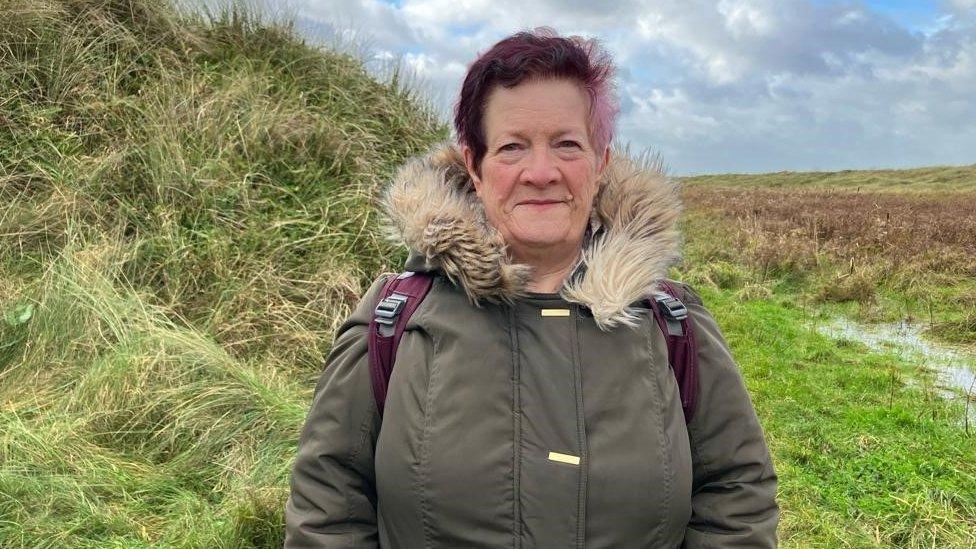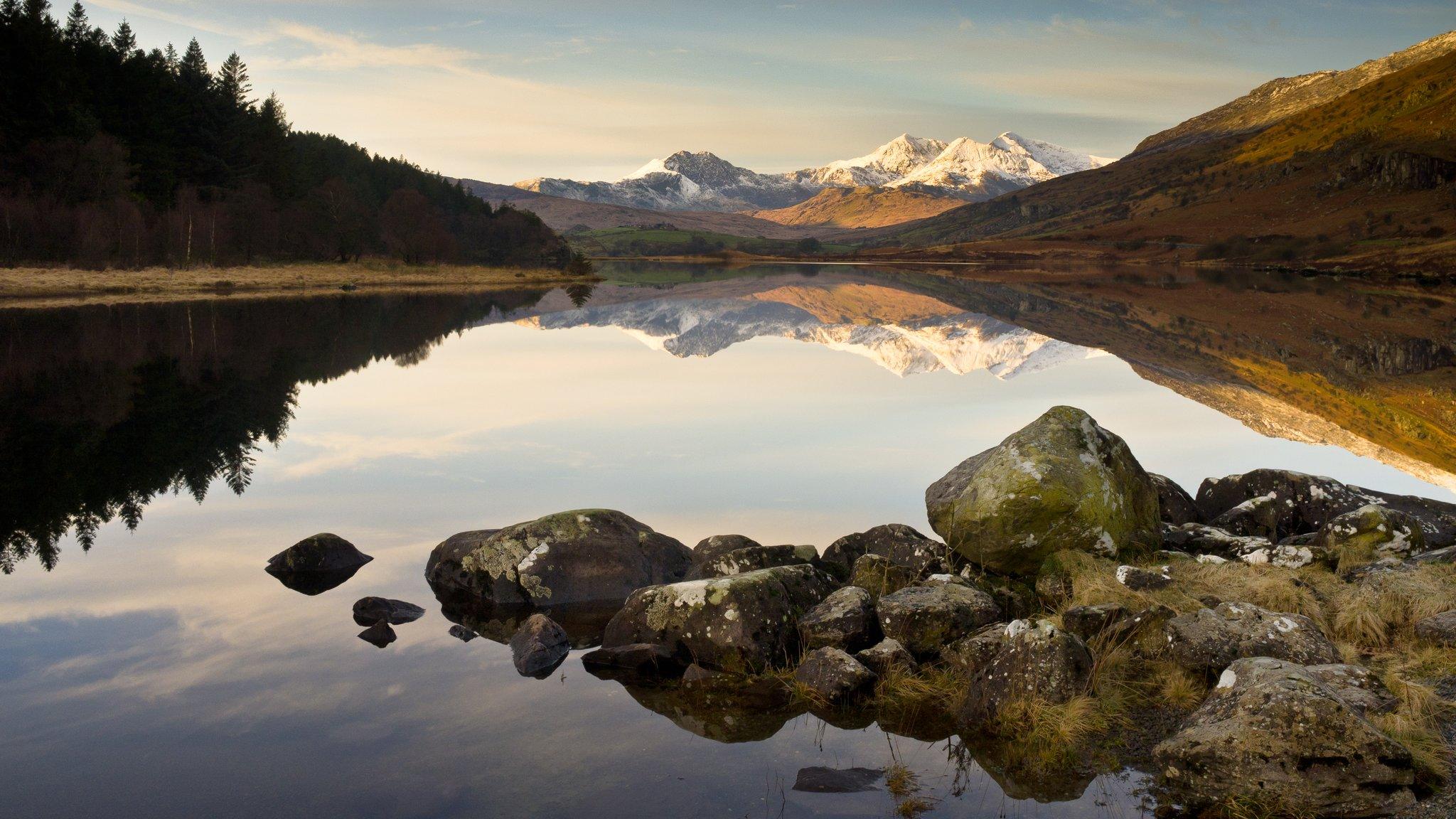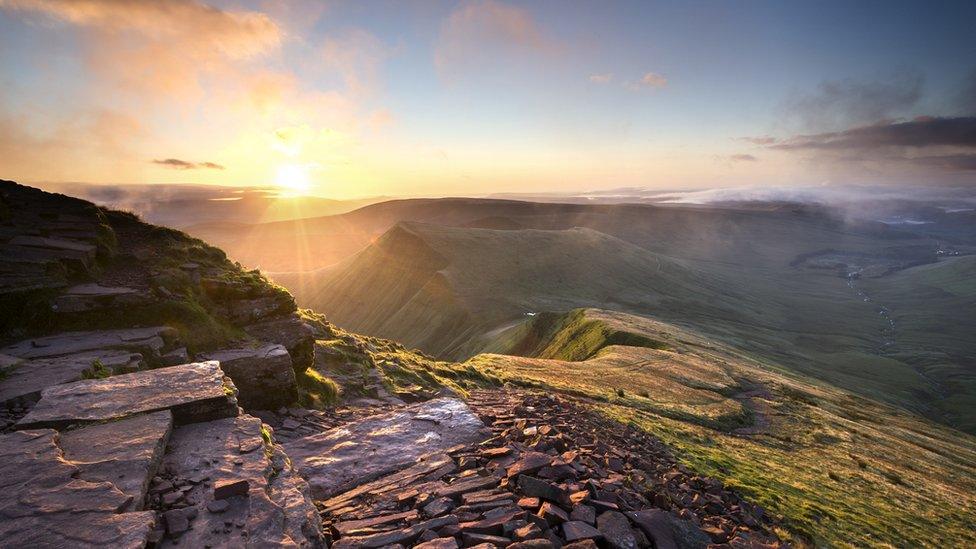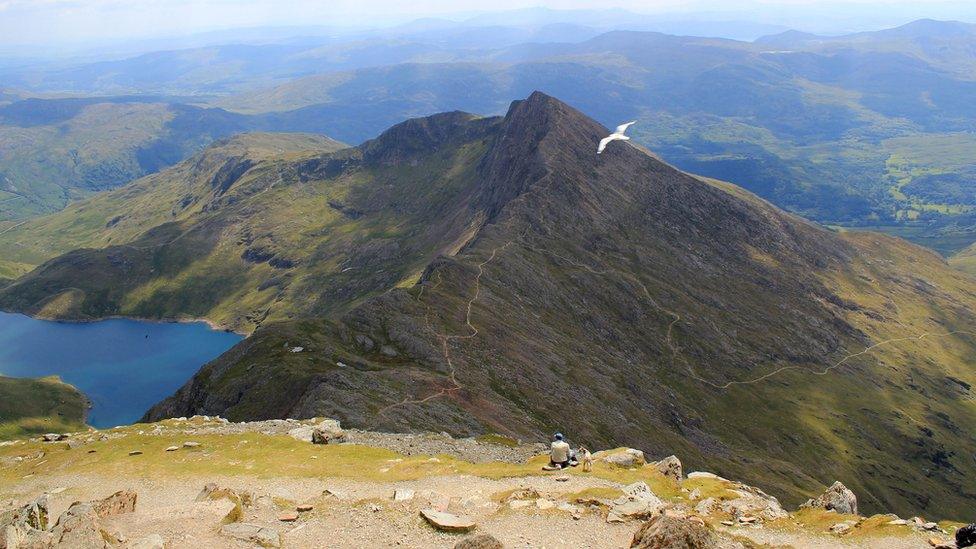New national park: North-east Wales reacts to proposals
- Published
Plans for a fourth national park for Wales have had a mixed response from some local people.
National parks are seen as the jewel in the crown of natural beauty.
They are areas of countryside protected by law to make sure the history, land and wildlife of the area are protected.
Wales currently has three national parks - Eryri (Snowdonia), the Pembrokeshire Coast and Bannau Brycheiniog (Brecon Beacons), and there are plans for a fourth.
This one is planned for the north east, but what do local people think of the proposals?
The Lewis family, fourth generation farmers who live in Llanrhaeadr ym Mochnant, Powys, are strongly opposed.
Mother Sarah Lewis' main concern is for the farm's future.
"We have tried to diversify in order to try and mitigate rising costs, and have installed solar panels, a wind turbine and branched out into egg production," she said.
"I'm worried some of those things may not have been allowed in a national park.
"I think it's an unnecessary spend for Welsh government to be even looking at when our education system is not as it should be, and our health service needs addressing."
'Increased house prices'
She does not think it is necessary when the countryside is "already beautiful".
Her daughter Elin is looking for her own home, but not in the area.
"I am looking over the border, all my friends have bought in England, we can't afford to buy here at the moment, and if a national park comes in, we won't be able to buy here in 10 years' time either, because although our incomes may have increased, so will the house prices."
Elin is also concerned national park status will encourage people from outside the area to buy properties as second homes and holiday lets, which could erode "our traditions, culture and language".

Kate Wright says anything that might bring employment opportunities to the area would be great
Kate Wright, 37, who lives in Llanfyllin, Powys, with her partner John Telford, 39, and their two children, said: "I think the devil's in the detail, but overall I think it's really positive.
"I'm really worried about the future of the environment and the world that our children are going to grow up in, so I think anything that's going to protect that is really valuable."
'Protection of the landscape'
Mr Telford added: "In my view, it could be a good thing, obviously it's a very scenic area that we live in, and anything that we can do to protect that is, in my view, a positive.
"I think enhanced protection of the landscape would be something that I'd welcome."
Linda Foster, of Llangynog, Powys, could see potential environmental benefits, but had "major reservations" about the potential impact on house prices.

The Gronant dunes are the only known breeding ground in Wales for little tern, and Christine Maresma Pares worries about the national park impact
Christine Maresma Pares, from North Wales Little Tern Group, said she would be concerned about the extra footfall, affecting the plants and wildlife.
"The extra footfall would definitely be a disadvantage to the little terns that breed here during the summer season.
"But I hope, maybe, that the national park association would be able to fund wardens to help protect them from that footfall, so really, I'm sitting on the fence a little bit about the situation."
Julie Masters, chair of the Clwydian Range Tourism Group, knows the problems with parking and overcrowding that extra visitors could bring, but remains in favour of national park status.
"On Moel Famau, we're often overrun with people, so that's not going to go away by not making us a national park.
"By making us a national park, we might actually be able to look at innovative ways to manage that."

THE CRASH DETECTIVES : Every serious incident on the road requires forensic examination
FIREBOMBERS: When English-owned second homes were targeted by arsonists

Related topics
- Published15 November 2023

- Published17 April 2023

- Published16 November 2022
